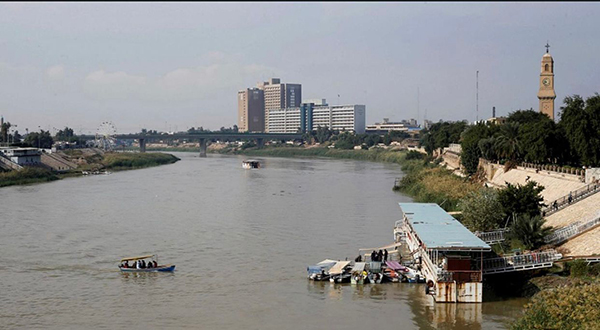Portrait
In close proximity, yet grasping the bigger picture
By Ute Kaiser
Kathrin Haas has not regretted moving from North Rhine-Westphalia to Baden-Württemberg. Her work at the Tübingen District Office corresponds to what the social worker with a master’s degree in social management wants to do professionally. Since September 2017, the 33-year-old has been in charge of the “Special Service for Refugees” department and a team of 32 employees – ranging from integration managers to refugee representatives.
The tasks are as varied as the circumstances of the people who fled war and violence: However, the focus is on integration management (see “Tasks of integration management”). Most employees work in this area. One team specialises in integration into the labour market. But even if someone is thinking about returning to their country of origin, they will get answers to all of their questions.
Kathrin Haas was born and raised in Sonthofen. She moved from Oberallgäu to the Rhine for her studies. There she first studied law because she wanted to “go into development aid”. For one year she worked in various development aid projects and institutions – and discovered social work for herself. Haas therefore moved to the Technical University of Cologne, where she earned a Bachelor’s degree in Social Work and a Master’s degree.
At that time she was quite “scientifically on the move”, says Haas. For example, she evaluated job promotion programmes. She benefits from her experience as a head of department. “It helps to provide municipalities or politicians with data.” These serve as the basis for decisions. But Haas also gained practical experience in social work in a district of Cologne with high rates of unemployment. She and the team were close to the clients’ lives and problems.
After ten years in western Germany, Haas moved back to the south of the republic. Her aim was to find a job where she could “be active nationwide, coordinate something and make a difference”. That is what she has achieved. The work remains engaging even after more than a year: “not that far away from the people and yet with a view of the big picture”. Only the topics have changed over time. According to Haas’ experience, the refugees are now less concerned with securing their basic needs. They are more concerned with the recognition of school or professional qualifications, internships and the search for temporary and permanent jobs.
Most employees in Haas field of work do not have a secure job. One part of the employment contracts ends on 31 March next year, another part at the end of 2020. The integration pact, concluded in 2017 for 24 months, expires. “We need a signal from the federal authorities”, says the department head – either an extension or a follow-up project. Integration is not a matter of two years. Neither for refugees nor for integration managers.



